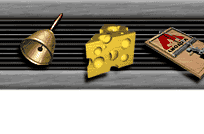





 |
 |
 |
||
 |
 |
 |
||
|
|
|
|
|
|
| Home : Behavioralist Module : Assignment 1 |
Behaviorism: A Dominant ParadigmTo complete this assignment successfully, you should:
During the past century, we worked to understand human beings and human behavior using behaviorism. Wundt, working to understand human nature by studying the things that could be observed and measured began the first scientific study in a lab. Subsequently, Watson worked with Little Albert, generalizing fear of fluffy white objects with clear success. Thorndike developed several laws regarding learning, including a widely repeated Law of Effect. Pavlov developed classical conditioning and Skinner studied pigeons and rats, moving the theory of behaviorism toward operant conditioning. Philosophers helped to fuel the paradigm. Rousseau spoke of children as though they were blank slates at birth, ready for family and society to write in a personality and prepare them at will, for the desired outcome. Thoreau, in his book, Walden, suggested that the perfect child could be produced if surrounded by an idyllic existence. Educators utilized the tools and ideas, making little distinction between training and educating. The 1960Ôs and 70Ôs were filled with behavioral objectives, behavior contracts, and behavior modification. This emphasis became predominant, and research about classrooms, teaching, child development and social sciences were based on the ideas. Now, with genome studies, we are beginning to move away from such an exclusive way of studying human beings, and our discipline model is less focused on training and conditioning. Still, many of the discipline strategies, and almost all the research for the past five decades utilize the vocabulary and constructs. For this reason, it is critical to review the vocabulary and recognize the predominant concepts.
Take a few minutes and try defining the following terms: Now click on the terms to see definitions. When you have checked for accuracy, report the number you got correct. Remember that you can paraphrase the definition. The example should provide additional help for recognizing the meaning of the concept. To explore behaviorism in greater depth, you can click on the links and learn more about these founders of behaviorism and psychology. It may be something you already know. Behaviorism, unlike all the other schools of though is both a philosophy of thought - and a form of psychology. Many people say it is the original form of psychology. If you find this school of psychological thought particularly fascinating, you may wish to purchase a good text on this subject. This is a suggested book: Kaplan, J. S. & Carter, J. (1995). Beyond behavior modification: A cognitive-behavioral approach to behavior management in the school. Austin, Texas: Pro-ed. ISBN 0-89079-663-7 Assignment: Please report that you read and attempted to define these terms. You can copy this statement. I read and tried to define _______ behavioral terms. Then paste it in this assignment box and fill in the number. Next you go to the area below, add your name and click the Send button. |
| E-mail J'Anne Ellsworth at Janne.Ellsworth@nau.edu |
|
Course Created by J'Anne Ellsworth & Center for Technology Enhanced Learning Copyright
© 2001 Northern Arizona University |
 |
 |
 |
 |
 |
|